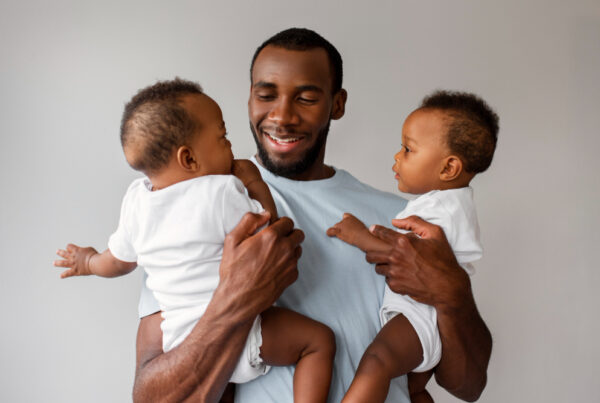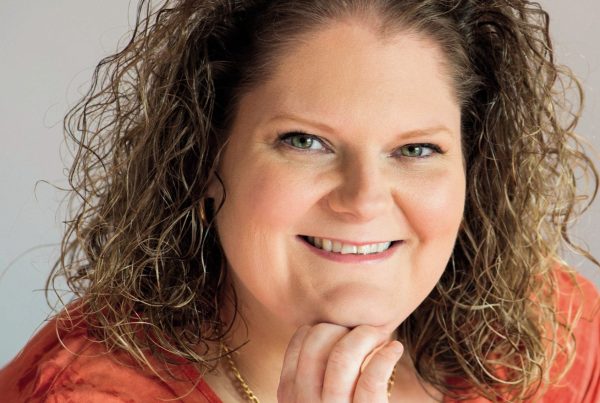An unsuccessful IVF cycle can be emotionally and financially devastating, nevertheless, it is no longer an assumption that IVF success rates are higher for infertile couples that go through multiple rounds.
In Nigeria, infertility affects around 1 in 4 couples and the most effective method for treating infertility Is IVF especially in the Nigerian environment where Fallopian tube factor and sperm count issues are major cause of infertility. To treat these two the best way is still IVF.
The challenge is how IVF is assessed. When you talk about the success rate of IVF, people want it to be about 80 percent, but we have to start from what we are comparing the success rate of IVF to. Look beyond the cost. Look at the number of cycles as success in IVF or natural reproduction is actually cumulative.
If we are comparing to the natural cycle, every month, it is 20-30 percent chance that a couple could be pregnant in their peak reproductive age. IVF can even give us 40 percent. It is doing better than nature, but now all over the world people have seen that there is a problem with IVF in the sense that many people do not do enough cycles in order to get the benefit of what IVF can deliver especially once there is a failed cycle.
It is not uncommon that people drop out of IVF even in places where the services are paid for or subsidized by the government and are easily accessible. This is because IVF takes a lot of psychological toll on couples. If you want to look at IVF success, you are better off looking at the cumulative pregnancy rate – not one cycle.
If you are less than 35 years of age, if you do one cycle, your realistic success rate is about 35-40 percent, but if you do three cycles your success rate goes up to about 75 percent and this is much better than just doing one cycle. If as a couple you don’t persevere enough, you are not going to get up to 75 percent.
So the big issue is how you can be encouraged to do enough cycles to give you a realistic chance of taking a baby home.
We know that in Nigeria where people pay out of pocket, one of the ways of encouraging multiple IVF cycles, is to have packages that would make it easier and even financially beneficial to be able to do more than one cycle.
It is not unlikely that as a couple, you would wish to save money for one cycle because you see IVF as the last resort and so once you raise money for one cycle, you go in search of the IVF procedure. However, once that fails, you are likely to withdraw for some time which may extend into a year or more and not do anything again.
Success rate of IVF is dependent on age. Assuming you are 34 and you have had a failed cycle which means you are at your peak and you go home for two years to wait or to gather money, time would not be on your side as your chances for success would have further depleted.
For some reason, it may not be money alone, you may just not be emotionally ready. You may be afraid of the failure which is not unnatural.”
One of the things fertility clinics and specialists do in addition to reducing cost is to provide emotional support. But it is important to have enough information before starting. The more the number of cycles, the greater the chances of success, but that is like a bitter pill in a country like Nigeria in which many people do not even really understand what IVF is all about in the first place.
You need to understand how IVF works, what are the hurdles to cross in order to have success and also be prepared to do multiple cycles.
Choose a good clinic and also be realistic about your expectations. You need to know the truth about success rates for IVF. A fertility center may claim to guarantee you 70 percent success in one cycle. That is not possible. It’s not physiological. What you need to know is that IVF success rates depend on the raw materials used.
These raw materials come from you and your spouse (spermatozoa and eggs). So if you are 40, the best that you can be given is the success rate of a 40-year-old. But if you don’t choose a good clinic you might do 10 cycles and there would be no success at all.
The first thing is your initial assessment which must be done to determine what kind of treatment exactly that you need.
The specialist may recommend donor eggs. There are couples that the women are over 40 and have never been pregnant yet still want to do IVF with their own eggs. From studies, people like that stand a better chance with donor eggs.
Once again be aware that it is the number of cycles that determine success rate. So, when choosing clinics, look at volume of cycles and the experience of the fertility specialist. Note that IVF success is not only about the cost, you should also evaluate the clinic. Talk to the care givers, if possible go to their labs and see that they have what they claim they have before you entrust yourself to them.





